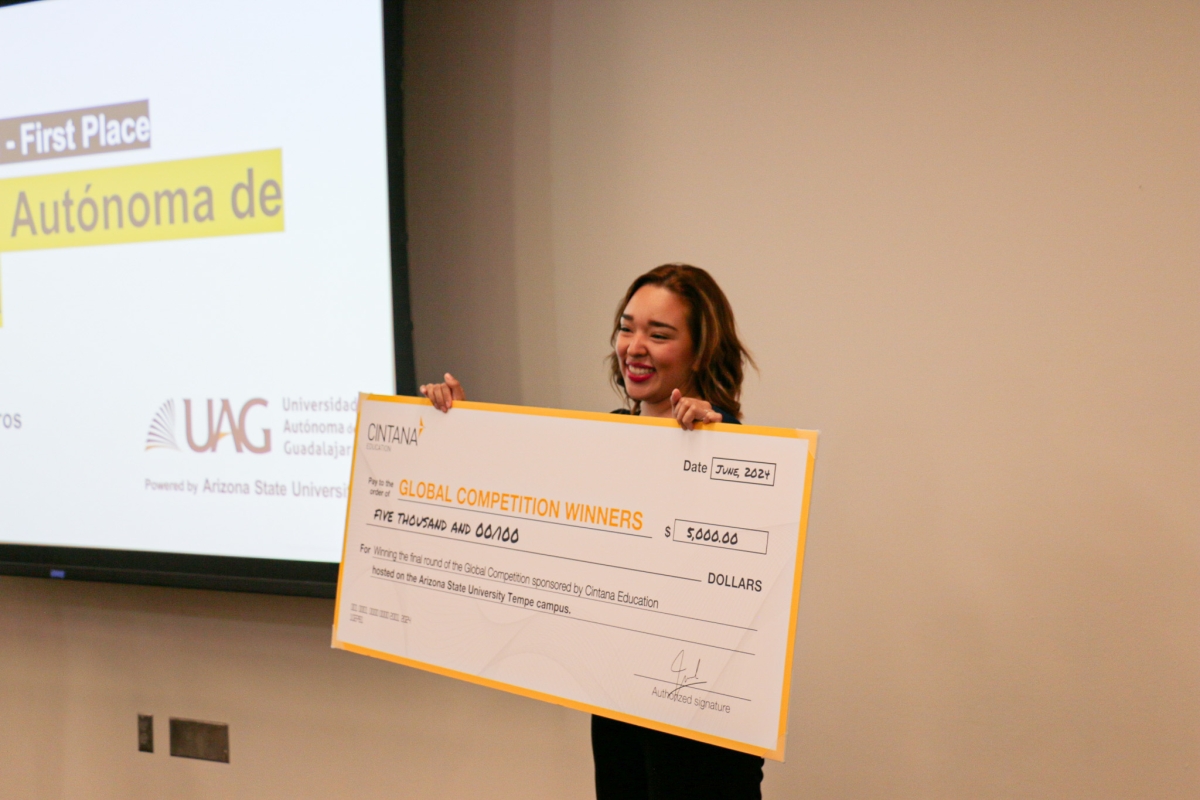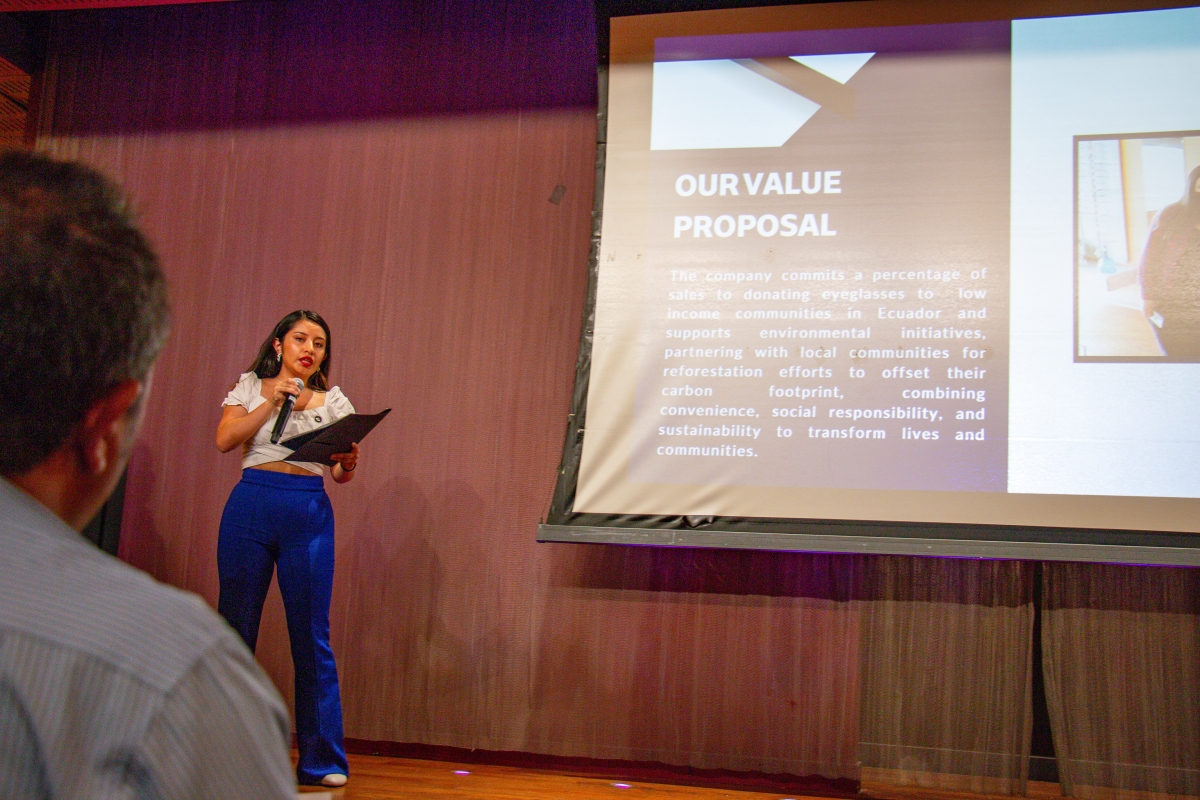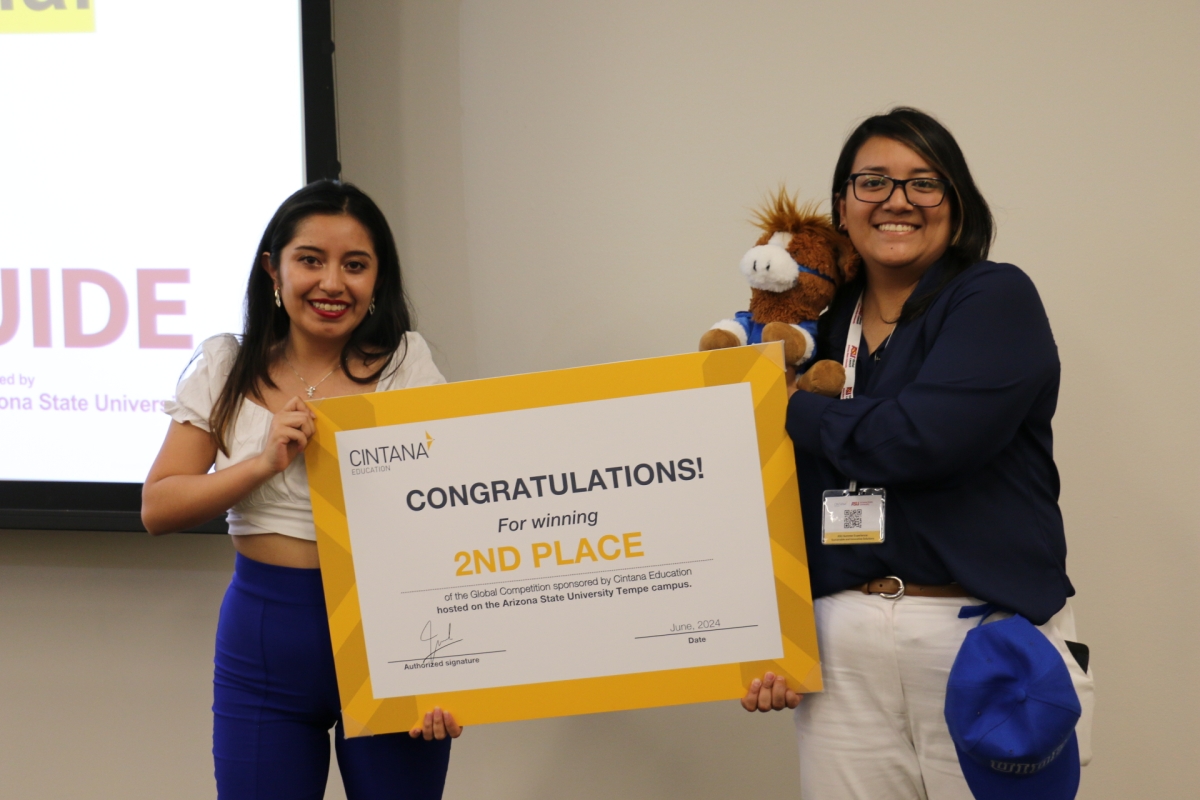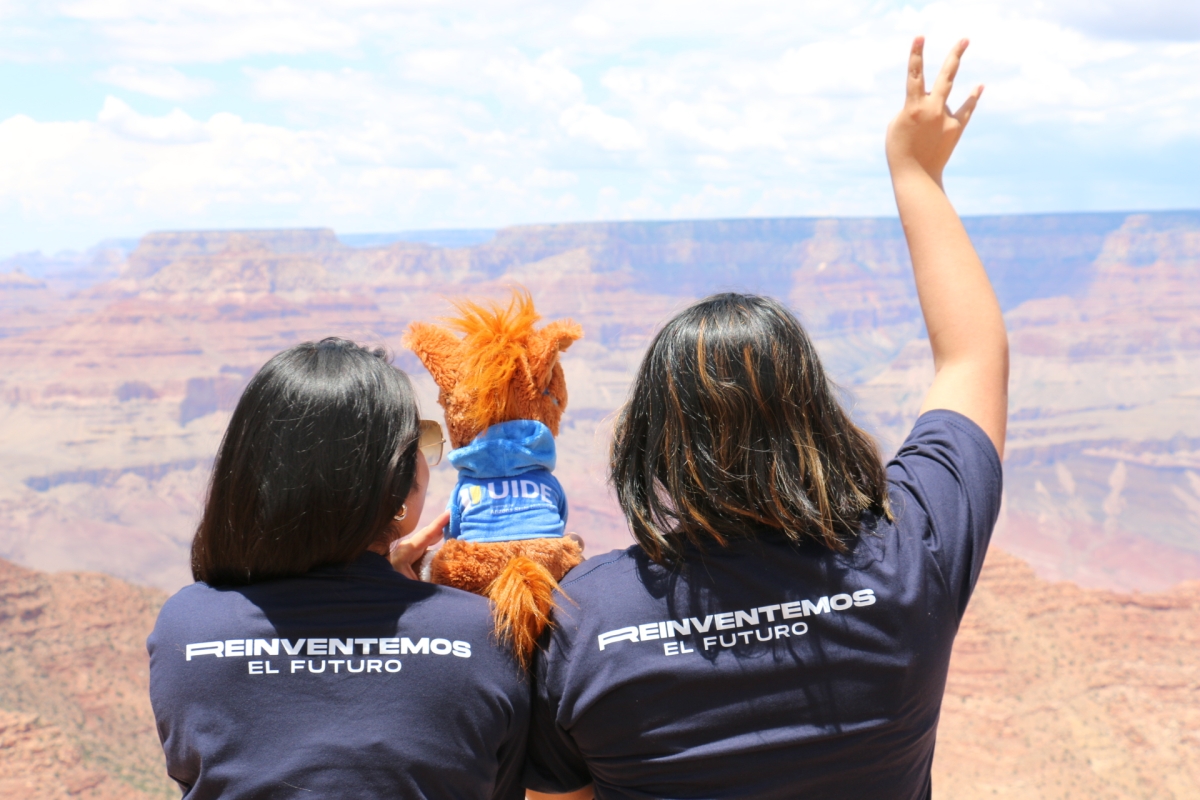Student from ASU partner university aims to revolutionize agricultural industry with sustainable livestock feed
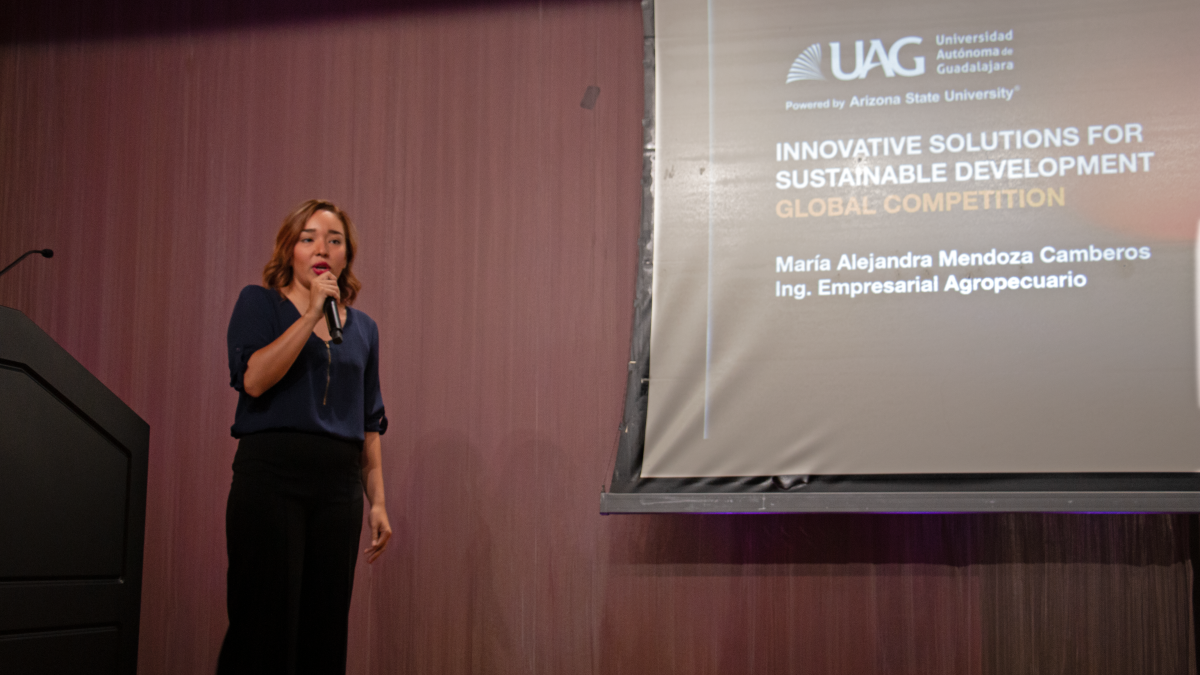
María Alejandra Mendoza Camberos, an agricultural business engineering student from Universidad Autónoma de Guadalajara in Mexico, presents her winning project to a panel of judges during the Cintana Education Global Competition at ASU. Photo courtesy ASU Global Launch
This summer, Arizona State University hosted the final round of the third annual Cintana Education Global Competition.
This yearly pitch competition for student entrepreneurs from ASU's global partner university network aims to showcase new ideas, businesses and products focusing on impactful, action-oriented solutions that address critical issues in their home regions.
“The Cintana Education Global Competition was created to align with ASU's charter, which emphasizes inclusivity, research that benefits communities, and the belief that every student can make a difference. By bringing together students from diverse backgrounds and regions, the competition fosters a spirit of friendly competition, professional success, resilience and shared commitment to addressing global challenges” said Rick Shangraw, president of Cintana Education, ASU’s global implementation partner.
This year’s final featured five teams, each representing their respective universities after winning preliminary rounds at their home institutions. Finalists then presented their projects during the final day of the "ASU Summer Experience: Sustainable and Innovative Solutions" program, hosted by ASU Global Launch, competing for the grand prize of $5,000 to advance their research.
Grand prize winner: Universidad Autónoma de Guadalajara
The winning project was awarded to María Alejandra Mendoza Camberos, an agricultural business engineering student from Universidad Autónoma de Guadalajara (UAG) in Mexico, for her project that creates a sustainable, protein-rich feed for livestock from the waste of industrialized mangoes.
“I started this project three years ago, and it has been climbing different stages within the UAG research unit,” Mendoza Camberos said. “The project was born during the pandemic isolation when I went to Rosario, Sinaloa, to work on a mango dehydrator while I waited for my classes to resume. During that time, I learned that this waste generates too much pollution and is a big expense for companies.”
With this project, Mendoza Camberos hopes to reframe how the world thinks about industrialized food by-products, especially in regions where nutrient-dense produce is grown.
“More personally, mango has always been my favorite fruit, and it has a family history because there has always been a large mango tree at my house. The love of mangoes kept me motivated by the project.”
Runners-up: Universidad Internacional del Ecuador
Universidad Internacional del Ecuador (UIDE) earned second prize with their project aimed at providing affordable, high-quality and long-lasting vision lenses to communities in Ecuador using an online platform and sustainable and durable lenses. A portion of the proceeds from their initiative will be used to provide free lenses to those in severe need, as well as to support reforestation efforts to offset the carbon footprint from any operations.
“Providing this cost-effective solution allows patients with poor vision, regardless of economic status, to have access to high-quality vision wear. Having clear vision is a basic need that we hope to fulfill with our product,” said UIDE participant Angie Mora Madruñero.
“With the donation model, we hope this initiative not only addresses a critical health need but also emphasizes social equity and accessibility in Ecuador,” added her teammate, Ariana Medina Guerrero.
As part of their second-place standing, the UIDE team was awarded mentorship opportunities to further develop and scale their business model.
“María from Universidad Autónoma de Guadalajara truly impressed us with her unique business plan, creatively addressing a real community need with a practical solution. UAG’s work was detailed and well organized, from research to market strategy, and included a thoughtful financial plan," said Lois Malone, associate director of student and faculty engagement for Cintana within the Office of Global Academic Initiatives at ASU. "The UIDE team’s use of empathetic innovation to provide affordable, high-quality and long-lasting vision lenses to low-income populations aligned perfectly with the competition themes of sustainability and innovation. We’re excited to see how each team refines their idea in the coming months."
For more information about ASU’s global university partnerships and the Cintana Alliance, visit global.asu.edu.
More Local, national and global affairs
Arizona nonprofits eager for guidance to address changing federal policies, ASU report finds
In the weeks following a series of executive orders reducing federal funding, including grants to nonprofits, Arizona State University’s Lodestar Center for Philanthropy and Nonprofit Innovation…

Watts College launches program to fill jobs created by pending public service retirements
Within the next decade, a “silver tsunami” of employees will retire from public service, according to Arizona State University School of Public Affairs Director Shannon Portillo.The huge…

How ASU research is helping first responders
Arizona State University’s faculty members are studying how to improve the jobs, health and well-being of first responders, and also applying their research through direct training to help these…


